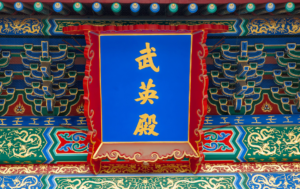Best Chinese Universities in the year 2020
If you’re looking for an International-student-friendly university, you might also be looking at rankings. The 2020 World rankings showcased some of the best Chinese Universities. They seem to easily and quickly give a closer picture of the quality of education these universities have to offer. But don’t let this impact your decision when choosing a school to study in China. University Ranking and popularity is just one of the factors you should consider to choose a university in China. Although the international ranking of universities gives a clear view of which schools offer the best education, the experience might be different for you. If you are very ambitious and want to enroll in one of the best Chinese universities, then this article will undoubtedly help you to make your final decision.
What do rankings say?
Rankings are usually based on multiple criteria. But it’s the overall score that gets the most attention. And that could, at the same time, rankings could be a pitfall and not tell the full story about a particular university. They are very general, and therefore sometimes a bit short by the bend.
For example, many universities are active in different fields of science. How they perform in each of these areas is difficult to grasp in one digit.
Also, some rankings look at how much a university publishes, or how often the university is quoted in publications. Universities in the specific fields of science score higher because they traditionally publish more in scientific journals than universities specializing in the social and humanities.
World University Rankings with 52 Chinese Universities
52 Chinese universities are listed in the World University Rankings of Times Higher Education (THE). The ranking of 980 educational institutions was released yesterday. Peking University stands at 29 and Tsinghua University at 35. Hong Kong, the special region in China, has five mentions. That is the largest number in the top 200 of all Asian countries or territory. The University of Hong Kong and Hong Kong University of Science and Technology ranked 43rd and 49th, respectively.
Asia is advancing
Five percent of Chinese universities (980 institutes) are among the world’s top Universities. According to Times Higher Education (THE), a total of 289 Asian schools for scientific education achieve higher rankings. In 2020 an Asian elite of 19 universities got into the Top 200 global list. The number is increasing every year. Five of them are located in small Hong Kong. That is a legitimate reason for pride in china’s Special Administrative Region. The equally small Singapore is doing even better. The city-state, with many Chinese inhabitants, is independent of China.
Mainland China is a demonstrably strong gainer. In the Asian list of THE University Rankings, China and Japan each have 39 institutes in the Asian top 200. Mainland China has the strongest advance with 22 unis in the top 100, a ‘power shift’ against Japan with its 14 unis.
World University Rankings?
The 2016 rankings are the 13th Times Higher Education World University Rankings. The British magazine “THE” puts them together with the cooperation of Elsevier, the major publisher of scientific literature. PricewaterhouseCoopers is their consultant. Universities receive a performance assessment based on five indicators. THE looks at education, research, influence through quotations, international appearance, and knowledge transfer.
The University of Oxford comes first. American and British universities still deliver the best performances in the world. However, the researchers and spokespeople of the World University Rankings acknowledge the rise of Asia and especially China. Two Asian educational institutions have only entered the top 100. It is the University of Hong Kong and Korea Advanced Institute of Science and Technology (KAIST). Four are in the top 200 for the first time: University of Science and Technology and Fudan University of mainland China and The Polytechnic University and City University of Hong Kong.
Government, Quantity, Quality
Phil Baty is the editor-in-chief of the academic world rankings. He attributes Hong Kong’s success to productive research with results used worldwide. Universities in the rest of China enjoy an ever-improving academic reputation and influence. They also attract a lot of international talent.
According to Baty, the strategic key to Chinese progress is in the hands of the government. ‘Since 1990, China has invested heavily in the development of world-class universities, setting a good example for other countries (…) With the correct level of financial support and the political will to reform the institutions, it seems that it is possible to achieve excellent results’. The leading author of the World University Rankings gives an opinion to do even better. ‘After the massive quantitative increase in funds and research, there is now, even more, to focus on quality. International cooperation can ensure this. Combine the best practices of the great Chinese scientific tradition with the academic practice in the West’.
Education in China
Education has always played an essential role in China. The imperial examination system was still used until the beginning of the twentieth century (1905) for the selection of civil servants.
Today, the Chinese education system plays a central role in the lives of the Chinese people from a very young age, the Gao Kao (the entrance exam for the best and best-known universities). In a way, it already determines the path to the career and fate of the students. Getting a master’s or bachelor’s degree from a prestigious university makes it easier to find a job at a higher level. As Chinese students have been under severe pressure from the start of their academic careers, it is no wonder that they have developed a high resistance to stress and competition. Exams and tests are taken every semester, months, weeks, and students are assessed with a points system. The higher the score, the better the student, if he/she can continue to achieve top results, the chances are higher that he/she can go to a prestigious high school and university.

Higher education
Higher education in china, which also includes vocational schools, usually starts at the age of sixteen. It costs between 4,000 and 6,000 yuan annually, and in general, students from rural areas choose to study at vocational schools to find a job immediately after graduation. A local company can find competent technicians among these recent graduates.
The education program of a higher secondary school consists of traditional subjects (Chinese, mathematics, chemistry, biology, IT), plus languages such as English (and other languages, e.g., Japanese).
Higher education schools are divided into tertiary vocational schools (two or three years), technological academies (three years), and undergraduate schools (four years).
Remember that if you are looking for staff with a bachelor’s degree, only students at undergraduate schools get this.
After three years of teaching at a graduate school, students receive a master’s degree. These students can apply for a Ph.D. (three years).
Top 5 universities in China
In China, there are many universities. In 2020, the top 5 is:
- Tsing-Hua University
- Peking University
- Fudan University
- Zhejiang University
- Chinese University of Science and Technology
(check here for a full list of Chinese Universities by Rank)
Generally speaking, all Chinese universities are multidisciplinary, but they are known for specific directions. Fudan University is very well recognized for their modern languages and political training, while if your company is looking for a highly trained engineer, you should consider candidates from Shanghai Jiaotong University and the Chinese University of Science and Technology.
Most Chinese universities organize masters after masters such as EMBA (Executive Master of Business Administration), M.A., and M.Sc. It is not uncommon to find a senior executive in these classes: the reason is usually that these people want a master’s degree that can take them further into their careers and sometimes provide more credibility to their employer and future partners.
Bear in mind that each university has its own rules on enrolments, but if you are applying for an English taught Degree program, a copy of your TOEFL or IELTS diploma is generally required. In contrast, if you are applying for a course in Chinese, you must have an HSK certificate to demonstrate your Chinese language level. In general, letters of recommendation are also very welcome.
5 Most Affordable Top Universities in China for International Students
Do you want to enroll in an affordable Chinese university? According to the Chinese University Admission center, which is the authority on admission issues in China, some universities are top-ranked yet affordable. The following are the most affordable and best universities in China. This is especially good for students on a budget. Read the post carefully.
These schools that you will read below are hand-picked, they are among the best schools in China and are still very affordable.
Beihang University
Beihang University is one of the most affordable universities in China. It’s a public university found in 1952. The university is highly specialized in the field of technology, engineering and communication. Based in Beijing, the university is ranked as one of the best universities in China. There are 12,523 students and 10,282 postgraduate students studying here.
A large number of different subjects are taught here by the world’s best teachers. Beihang University is commonly known as BUAA. BUAA stands for Beijing University of Aeronautics and Astronautics.
Below are the courses offered at Beihang University:
- Avionics
- Astronautics
- Aircraft construction
- Electrical engineering
- System designs
- Mechanical engineering
- Many other postgraduate and doctoral programs
Tuition:
International tuition fees for all technical programs per academic year are RMB 30,000 in the English language. Tuition fees for autumn-long courses in the language are RMB 8,600 per course.
Capital Normal University
Capital Normal University is in Beijing, China. It was founded in 1954 as a public university. The number of students following different programs here is 27,940. It is by far, one of the affordable universities in China. The quality of the education at Capital Normal University is high. The university has a diverse number of professional courses. Capital Normal University consists of 17 different departments and colleges.
Below are the courses offered at Capital Normal University:
- Literature
- Languages
- Political science
- Music
- Art
- Engineering
- Sciences
Tuition:
International tuition fees for undergraduate courses in engineering is RMB 27,600 per year. Tuition fees for international postgraduate courses are from RMB 27,600 to RMB 31,600 per year.
Tongji University
Do you know that Tongji University is one of the best universities in Shanghai, China?. The University is said to be among the top 5 most affordable universities in China. Founded in 1907 as a public university, It offers both undergraduate and postgraduate courses.
There are about 30 thousand students here studying different subjects. It offers industry-leading courses that are professionally designed. The courses available here are both Chinese and English.
The following courses are available at Tongji University:
- Medicine
- Engineering
- Company
- Applied sciences
- Languages
Tuition:
International tuition fees for all non-graduate courses at Tongji University range from RMB 20,000 to RMB 35,000 per year. Tuition for postgraduate students for all classes is from RMB 22,960 to RMB 32,800 per year.
Southeast University
Southeast University is also one of the affordable universities in China. It was founded in 1902. The university is public and offers a large number of courses. It is located in Nanjing, China. There are 43,643 students studying here.
There are a large number of courses offered at Southeast University. The courses available here are available in both Chinese and English.
The next courses are available here:
- Engineering
- Architecture
- Automation
- Applied sciences
- Medicine
Tuition:
International tuition fees for all non-graduate programs range from RMB 16,000 to RMB 30,600 per year. Tuition for all postgraduate courses is from RMB 23,000 to RMB 35,000 per year.
Hunan University
Hunan University is one of China’s oldest universities. It is the traditional Chinese signature of education offering the best and affordable courses. It was established in 976. About 46,000 students are studying here.
Courses offered here:
- Engineering
- Medicine
- Design
- Applied sciences
- Languages
Tuition:
International tuition fees for all undergraduate programs start from RMB 15,000 to RMB 17,000 per year. Tuition for postgraduate courses starts from RMB 17,000 to RMB 21,000 per year.
Want to study in China?
China Scholar has one of the best admission services in China. We assist over 5000 International students in China every year. Our partnership traverses several industries to deliver real opportunities and value to our clients.
China Scholar will help you secure admission to Chinese Universities for your study in China. With over a decade of experience, we are the most extensive student mobility program in China, covering all aspects of what you need. We also support you through your stay in China, offering comprehensive packages. Aside from getting a professional admission process, we encourage you through Career Development, Internship programs, study success, and job introduction. While in China, you will get full access to our community of entrepreneurship programs, career events, and Senior coaches.
Click to Enquire now to speak with our Admission Experts for free consulting













